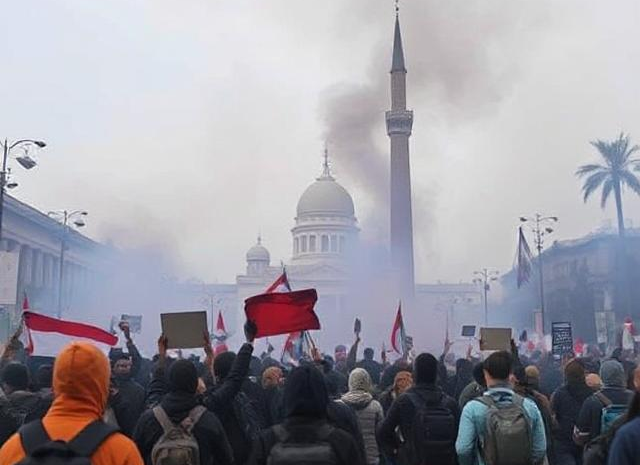
The Impact Of Political Unrest On Travel Plans And Insurance Coverage
Political unrest can have a significant impact on travel plans and insurance coverage, influencing both the logistics of the trip and the protection travelers have against disruptions. Here’s a breakdown of how political unrest can affect travel:
1. Impact on Travel Plans:
- Flight Cancellations and Delays: Political unrest, such as protests, strikes, or civil unrest, can lead to airport closures, flight delays, or cancellations. Airports might become inaccessible due to roadblocks, and airspace could be closed for safety reasons, disrupting flight schedules.
- Restricted Access to Destinations: Countries or regions experiencing political unrest might impose curfews, lockdowns, or border closures, making it difficult for travelers to enter or exit. Popular tourist destinations might become unsafe or temporarily off-limits.
- Unpredictable Travel Conditions: Even if flights are not directly affected, political unrest can lead to unpredictable travel conditions such as blocked roads, restricted public transport, or other disruptions in local infrastructure.
- Changes to Itinerary: Travelers might need to change their itineraries or divert to safer locations, incurring extra costs, such as rebooking flights, adjusting accommodation, or booking last-minute arrangements.
2. Impact on Insurance Coverage:
- Cancellation and Interruption Coverage: Most standard travel insurance policies do not cover cancellations due to political unrest unless the situation specifically falls under covered events (such as a government-mandated evacuation). If unrest causes a trip to be canceled or interrupted, coverage may be limited, and travelers may need to prove that the unrest directly impacted their trip.
- Travel Advisory and Insurance Clauses: Insurance companies often provide coverage for trips affected by political unrest if the U.S. State Department or the equivalent government body issues a travel advisory for the region. However, if a traveler chooses to go to a destination against such advisories, their insurance coverage might not apply.
- Emergency Medical Coverage: Political unrest may sometimes lead to civil violence or an escalation of health and safety risks, and travelers may need medical assistance. Many travel insurance policies provide emergency medical coverage, but specific exclusions may apply in cases of war or civil unrest. It’s essential to check if coverage includes evacuation from a conflict zone.
- Baggage and Personal Effects: Political unrest can also impact the safety of personal belongings, either by theft or damage. However, if the unrest directly causes the damage, this may fall under the coverage provided by travel insurance, depending on the policy.
- Force Majeure Clauses: Insurance policies may have force majeure clauses that exclude coverage for events deemed to be out of the insurance provider’s control, including political unrest. It’s important to understand the exclusions of the policy before traveling to potentially unstable regions.
3. How to Protect Yourself:
- Monitor Political Situations: Stay informed about the political situation in the destination and surrounding areas through news outlets and government travel advisories. Changes can happen quickly, and being proactive will help in making adjustments to travel plans if necessary.
- Purchase Comprehensive Travel Insurance: Consider a policy that covers cancellations and interruptions related to political unrest. Some insurers offer “cancel for any reason” policies, which provide greater flexibility in case of unexpected political disruptions.
- Flexible Travel Plans: Opt for flexible flight tickets, accommodation, and car rental arrangements, where possible, to make last-minute changes more manageable without incurring significant penalties.
- Know the Coverage Limits: Understand the specific terms, conditions, and exclusions in your travel insurance policy, especially related to civil unrest, so you can avoid surprises if an incident arises.

